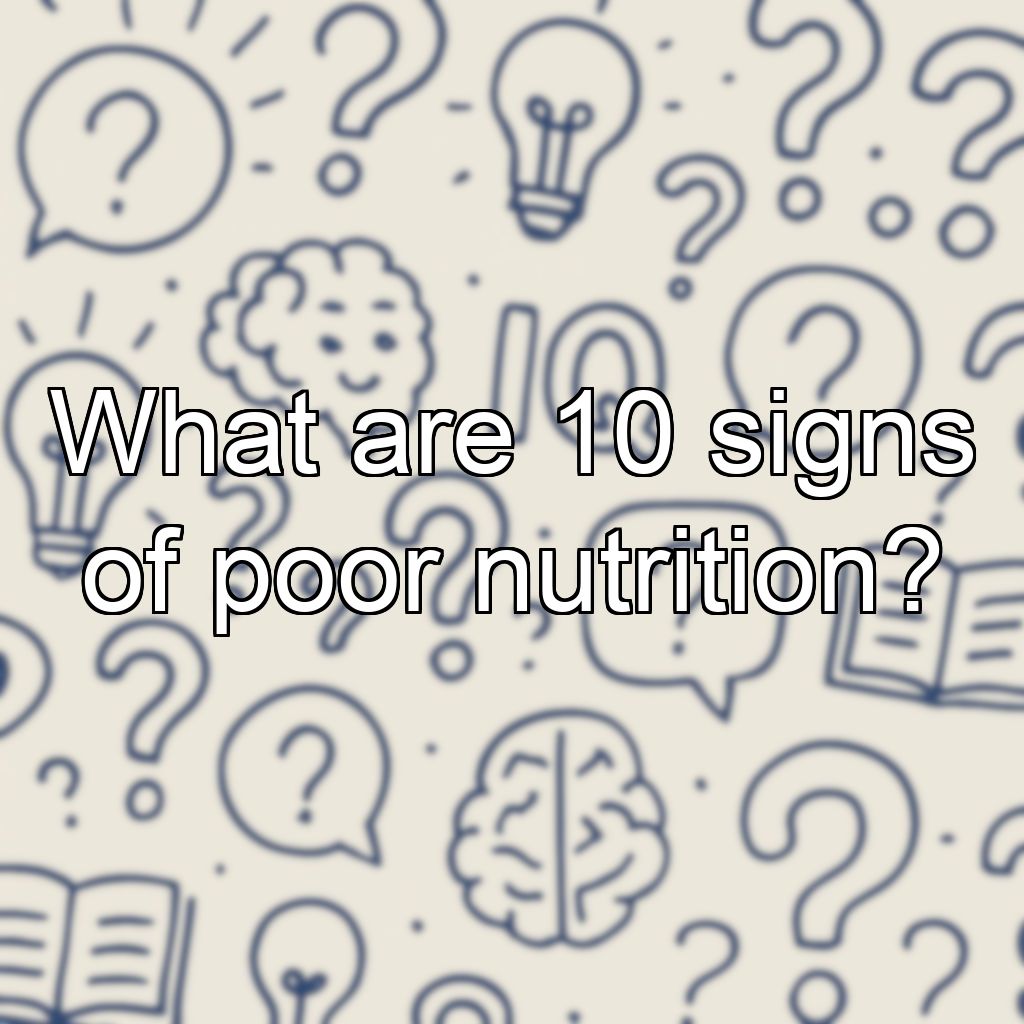What are 10 signs of poor nutrition?

10 Signs of Poor Nutrition
- Fatigue and Low Energy: Persistent tiredness or lack of energy can result from insufficient calories, protein, or certain vitamins and minerals.
- Brittle Hair and Nails: Hair loss, thinning, or weak nails may signal deficiencies in protein, iron, biotin, or other nutrients.
- Pale or Dry Skin: Poor nutrition, particularly lack of vitamins (such as vitamin C, A, or B vitamins), can cause skin to appear pale, dry, or flaky.
- Frequent Illness or Infections: A weak immune system due to inadequate intake of nutrients like vitamin C, zinc, or protein can make you more susceptible to infections.
- Poor Wound Healing: Slow healing of cuts or bruises may indicate a lack of protein, vitamin C, or other essential nutrients.
- Mouth Problems: Sores, cracks at the corners of the mouth, bleeding gums, or a swollen tongue can be signs of deficiencies in B vitamins, vitamin C, or iron.
- Digestive Issues: Constipation, diarrhea, or bloating may be linked to inadequate fiber, fluids, or imbalanced diet.
- Unintended Weight Changes: Sudden or unexplained weight loss or gain often reflects poor dietary habits or nutrient imbalances.
- Poor Concentration and Mood Changes: Lack of essential nutrients, such as omega-3 fatty acids, iron, or B vitamins, can affect mood, memory, and concentration.
- Muscle Weakness or Cramps: Inadequate intake of protein, potassium, calcium, or magnesium can lead to muscle problems and cramps.
If you notice several of these signs, it's important to review your dietary habits and consult a healthcare provider or registered dietitian for a thorough assessment.